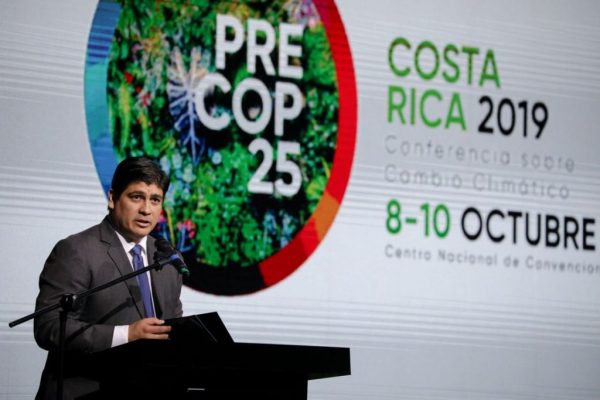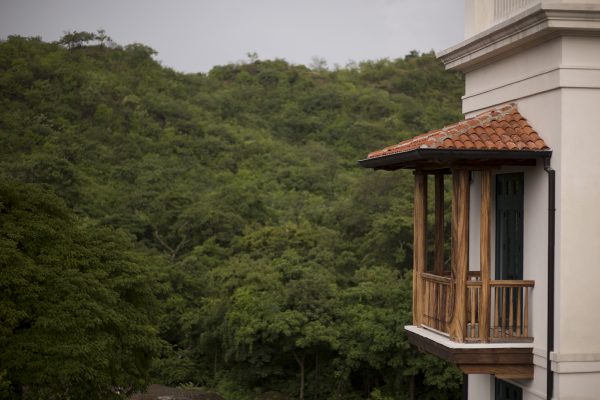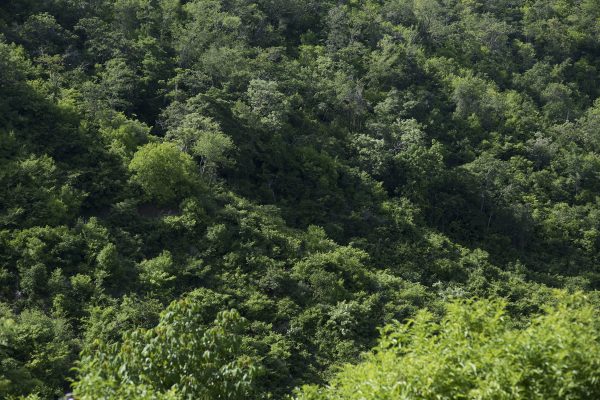Monday, October 28th, 2019.
In this Daily: Las Catalinas Working Towards Sustainability at PreCOP25
Costa Rica recently hosted PreCOP25, a preparation meeting before the UN’s Framework Convention on Climate Change. This year, a global meeting of stakeholders seeking to combat climate change will take place in Santiago, Chile, and PreCOP25 served as a gathering to workshop ideas, meet, and prepare before the convention in December.
Representatives from Las Catalinas were invited to attend this meeting due the town’s work as an example of sustainable development as well as the town’s continuing commitment to combating climate change.
This meeting was arranged for the international delegations (700 people representing 86 countries) to have working and negotiation tables to discuss issues in-depth. For Las Catalinas to be invited to this workshop shows the value of the work done around town and in the reserve. This was also an opportunity for teams in town to learn from frontline experts from the United Nations and countries around the world who are working towards similar goals.
 The event featured 700 delegates and stakeholders representing 86 countries
The event featured 700 delegates and stakeholders representing 86 countries
The National Plan for Carbon Neutrality
Town representatives were personally invited by the Ministry of Environment, as part of the country’s movement towards carbon neutrality.
The Plan Nacional de Carbono Neutralidad 2.0 or PNCN 2.0, is a nationwide initiative to recognize the proper management of greenhouse gas (GHG) emissions by public and private organizations. Participating entities are accountable for their emissions, and join together to share information, resources, and infrastructure to help other communities and companies offset their emissions.
 The 1000 acre forest will help not only Las Catalinas, but also other towns and organizations become carbon neutral
The 1000 acre forest will help not only Las Catalinas, but also other towns and organizations become carbon neutral
Due to the offset approach in Las Catalinas, which includes 1000 acres of tropical dry forest, town has already made significant progress towards carbon neutrality, and aims to become a net-negative carbon contributor. By removing more carbon from the atmosphere than it contributes, Las Catalinas could even provide a chance for other towns, organizations, and companies to offset their carbon footprint by investing in town’s ecosystem services.
Carbon Neutrality and Sustainability in Las Catalinas
One of the main contributions to sustainability in Las Catalinas is the town’s master plan, which states that only 20% of the property is going to be developed intensively in a compact pedestrian beach and hill town. This leaves 80% of the land for passive restoration of the tropical dry forest, which is the most threatened habitat in Costa Rica.
Restoration of this forest provides ecosystem services such as carbon sequestration, water conservation and production, biodiversity and landscape conservation. These ecosystem services all contribute to the environment as a whole, and actually provide an opportunity to other entities in the National Plan for Carbon Neutrality. Towns and organizations that want to offset their carbon footprint and do not have the physical possibility to do so in their current locations can invest in the forests and conservation efforts at Las Catalinas, providing a net negative carbon footprint across Costa Rica.
One significant milestone for towns is the Essential Costa Rica accreditation, a program that promotes sustainable investment in Costa Rica, by CINDE, the NGO endorsed by the Costa Rican government on this regard.
Achieving the Essential Costa Rica Accreditation
The first part of a potential ECR accreditation is to track the actual effect of town’s forests. Researchers are planning to set 4 plots of 1 hectare each in the reserve, which will be tracked over time by carbon sensors to gather data on the forest’s current capacity of carbon sequestration.
 Researchers will select a representative sample in the reserve
Researchers will select a representative sample in the reserve
There will also be an arboreal survey, in which researchers will identify all the tree species with DBH (Diameter at Breast Height) equal or greater than 10 cm in each plot. This will help determine the total volume, height, and georeference (position within the plot) of each tree, which will then be used as a baseline to extrapolate out to the majority of the reserve. In all, this will help build a digital model of the reserve, which will support the data from the carbon sensors.
At the same time, researchers will be in town performing a GHG (greenhouse gas) inventory, to understand the emissions being produced by various sources. Thanks to Costa Rica’s 98% sustainable grid, much of the energy used in Las Catalinas comes from sustainable sources, and being a primarily car-free town reduces transport emissions drastically, so town is positioned well for this inventory.
With all of this information, researchers can calculate town’s total carbon footprint, as well as prevented emissions and reductions, leading to a potential accreditation inspection for the certification.
Continuing Efforts in Town for Sustainability
One of the major efforts that is ongoing in town is the prevention and management of wildfires. The forest sequesters a great deal of atmospheric carbon, which makes the 10 year forest fire prevention and management effort more valuable to the environment every year.
At the operational level, efforts to manage solid wastes efficiently are being recognized around the region, including an official recognition as the canton’s best waste manager last year by the Municipality of Santa Cruz.
There is also town’s state-of-the art water treatment plant, which process both black and gray waters at a rate of up to 480 cubic meters per day. This treated water is then used, among other purposes, to attend to forest fires.
Climatization of buildings is a factor that many towns and companies struggle with when considering sustainability, but town’s tropical traditional architecture is very specifically designed to this environment, including foam-coring construction, open air living, and rain-cooling, makes it significantly easier to keep homes climatized.
What You Can Do
Simply embracing the walkable lifestyle in Las Catalinas is already a big contribution to carbon neutrality in the country. Every day spent on two feet and two wheels is one that doesn’t need to be spent in a car. For trips out of town, taking the Toyota Mirai is a sustainable option.
Spending time in the outdoors or letting the natural ventilation of town’s homes lighten the load on A/C and provide another daily way to contribute, along with classic practices like conserving water and turning off the lights.
The Guanacaste Community Fund is another way to contribute. Their partners include organizations like Restoring Our Watershed, who are working around the area to restore the tropical forest and water around the country.
The movement towards a more sustainable way of living is one going on all across the globe right now, and especially in Costa Rica. Building a lifestyle that’s more sustainable is an important responsibility, and one that is part of the core values of Las Catalinas.
[maxbutton id="1" url="https://cta-redirect.hubspot.com/cta/redirect/4917861/34a22dcc-60c4-44ef-a311-a4eb2671b39e" text="Experience it Yourself" ]